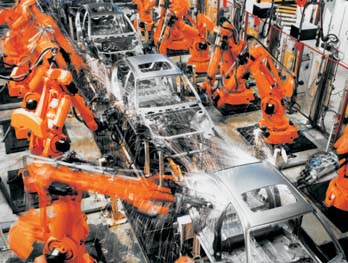On Being Radical and Making Choices
Much of this weekend's free time was spent grinding through the ridiculous backlog of Google Reader items that had built up during the five days I spent in Las Vegas last week for HRevolution and the HR Technology Conference. Of the many thousands of items I at least title-scanned, and the hundred or so I actually read - this was by far the top piece of the lot, from the Scientific American 'Context and Variation' blog, a piece called 'The three things I learned at the Purdue Conference for Pre-Tenure Women: on being a radical scholar.' Old-school radical.
Old-school radical.
At first glance I was tempted to pass by the piece, I am, after-all, not pre-tenure, nor a woman. But for whatever reason I decided to read the piece by Kate Clancy, and was immediately glad I did, because in the length of a standard blog post, Ms. Clancy manages to to touch on not one but two interesting and massively important ideas that transcend the purely academic context in which she writes, and are applicable and worth contemplating in the broader world of work.
Take Number One - Lots of jobs require ridiculous amounts of time, effort, energy, and commitment to succeed.
And to get ahead you often need to 'beat' the other person that wants that title/money/prestige just as much as you do. But if the 'external' demands on your time and your competitor are unequal, (in Ms. Clancy's case she is a parent of a young child), then you are heading into the competition with constraints and pressures that can make the battle seem not worth fighting. I know the whole 'kids vs. career' tradeoff is not a new issue, but Ms. Clancy does a great job of recognizing the issues without asking for sympathy or special treatment. From the piece:
We sit some more. We talk some more. About how we can’t compete against people with kids but a stay at home spouse, about how we can’t compete against our peers without kids at all. He is in a department where people show up early and stay late. You can find a third of the faculty in the department at any given time on the weekends. I’m in a department where folks work from home as often as they work from the office, but they are still getting stuff done. And it feels like they are all getting more done than me.
Pile the ubiquitous Mommy Guilt on top of this, the culturally conditioned guilt that says not staying at home hurts my child despite the intellectual knowledge that good daycare, and the kind of quality investments I make with my daughter, are hugely beneficial, and there are few hours in my day to sleep.
It's the grind most of us, even those of us not chasing a major career objective like academic tenure, but simply trying to do more, better, more innovative things have run into. The more commitments and obligations you have outside of work, the tougher your fight to the top, (or even the middle), is going to be. Neither Ms. Clancy nor I have this figured out yet by the way.
Take Two - On traditional measures of success and influence.
In the Human Resources/Talent/Recruiting space we've had our share of navel-gazing debates about influence, and the challenge of assessing online influence compared to more traditional forms. Lance Haun led a popular session at HRevolution about this topic. While the debate continues, there seems to be little doubt that blogging, social media, and even non-traditional and 'unconferences' like HRevolution and others are chipping away at the established ideas about influence and perhaps even authority in our industry. In the Scientific American piece that focuses on the world of academics, Ms. Clancy wonders about the continued reliance on publication in academic journals as the standard of relevance, achievement, and influence in her field. Again from the piece:
But are peer-reviewed publications, read and cited by only by a select group of those peers, the best way to assess influence and importance? They are certainly no longer the only way. My 2006 paper on iron-deficiency anemia and menstruation has been cited by six other papers; my 2011 blog post on this paper has been viewed tens of thousands of times and received almost sixty comments between its two postings.
Boom. The entire 'old school vs. new school' measures of influence argument summed up in two sharp sentences. Again, neither the Scientific American piece nor I profess to have all the answers for this, but it is clear that even in the stodgy world of academia there appear to be calls for change, or at least dialogue about how these newer (they are really not all that 'new' anymore), can and should impact the industry in more significant ways. Ms. Clancy want to be, as I suspect many of you do, to be more 'radical', and more true to their interests and passions in the face of slower-moving organizations of power.
I hope you take a few minutes to read Ms. Clancy's entire article, for me it represents some of the best and most thought-provoking content I've run across in quite some time.
Have a great week!

 Steve
Steve


